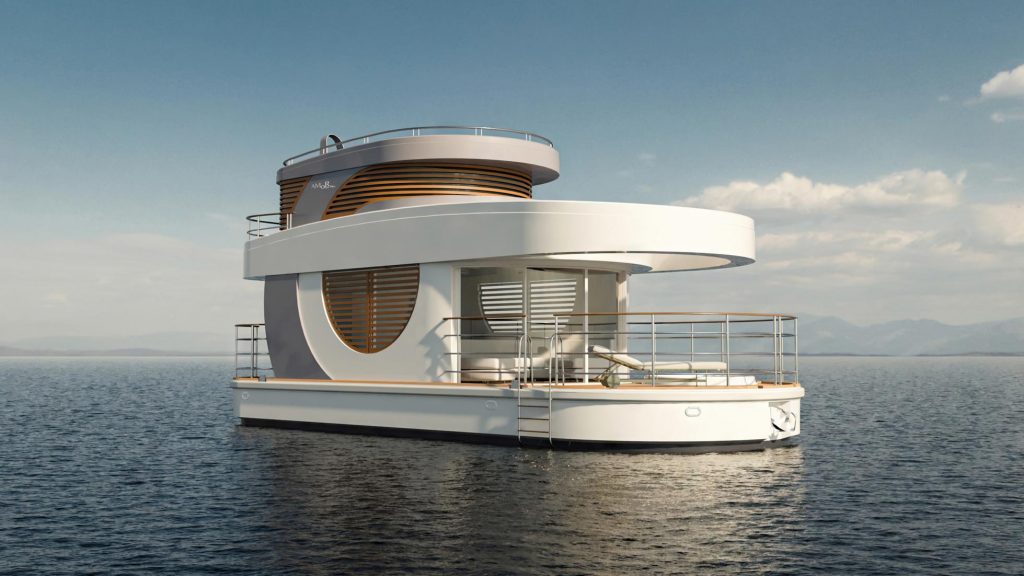An all-female design team has unveiled Oasis Meu, a new project featuring off-grid floating villas designed for the residential and hospitality markets. Located along Croatia’s Adriatic coastline, Oasis Meu combines eco-innovation, extreme privacy, and unique design, offering the comfort of a private resort with the option of total seclusion. Solar-powered, locally sourced, and shaped by a deep respect for nature, each villa is designed for travelers seeking a meaningful connection with the sea.
Developed by Caelum 1029, a Croatian company combining architecture, marine engineering, and hospitality design, the project is already drawing interest from international investors and high-end hotel brands.
Nature is the guiding force behind this project, shaping everything from the villa’s curves to the circular interior layout. As the designers explain, “Nature has always been an endless source of inspiration, and that is the philosophy behind the project. The magnetic attraction of Nature can be found in every single detail of these floating villas.”
The two-story floating villa offers accommodations for up to four guests. The main deck features a saloon, a fully equipped kitchen, a bathroom, a convertible seating area that can transform into a round bed, and an enticing outdoor hot tub. Upstairs, the bedroom, with its full 360° view, features circular architecture and soft furnishings, while floor-to-ceiling glass windows frame the surrounding landscape.
The designers add, “Equipped with solar panels, rainwater collection systems, and intelligent energy management, each villa operates in harmony with the ecosystem around it.”
I spoke at length with Maja Regjo, founder and CEO of Oasis Meu, about her motivation for creating the Company. “I’m a naval architect by profession, and I worked in a shipyard for more than 20 years before starting my own business, which is now fully female-run.” She adds, “The three pillars of my business are Amor, Alma, and Aqua. All different designs of floating villas. The prototype was built in 2023 and is Amor; its architecture follows a soft, circular design language – a contemporary interpretation of the ’round villa’ concept, with flowing lines and panoramic glazing that create a seamless connection with the sea.”
The current Amor prototype is anchored in Split, Croatia, and available for private rental. As for what’s next, Regjo says: “Our next project is Amor 39, which is a two-bedroom model and made from an environmentally friendly composite material with 80% recycled content. The big difference in the new villa is that the second bedroom will be below the surface.”
Interest from investors and hospitality partners has been strong. Regjo adds: “We are working with private investors, and are also targeting hotels and Marina resorts, something unique to offer to their guests.”
The company is also envisioning an ecosystem that extends beyond the villas themselves. “Another stage of the project is to add a private cinema with reception, and a restaurant to connect to the villas.”
The current starting price for a floating villa is around €850,000, with custom options potentially raising the cost. Units can be delivered fully equipped, with or without engines, and with or without solar systems. Private rentals begin at €700 per day during high season.
Looking ahead, new models continue to evolve. As Regjo explains, “Beyond Amour is the development of Alma and Agua. Alma will be rectangular, and it will be easy to make similar to Lego blocks. We will try to make some units that will be easy to match with each other.”
MORE FROM FORBES
floating villa

